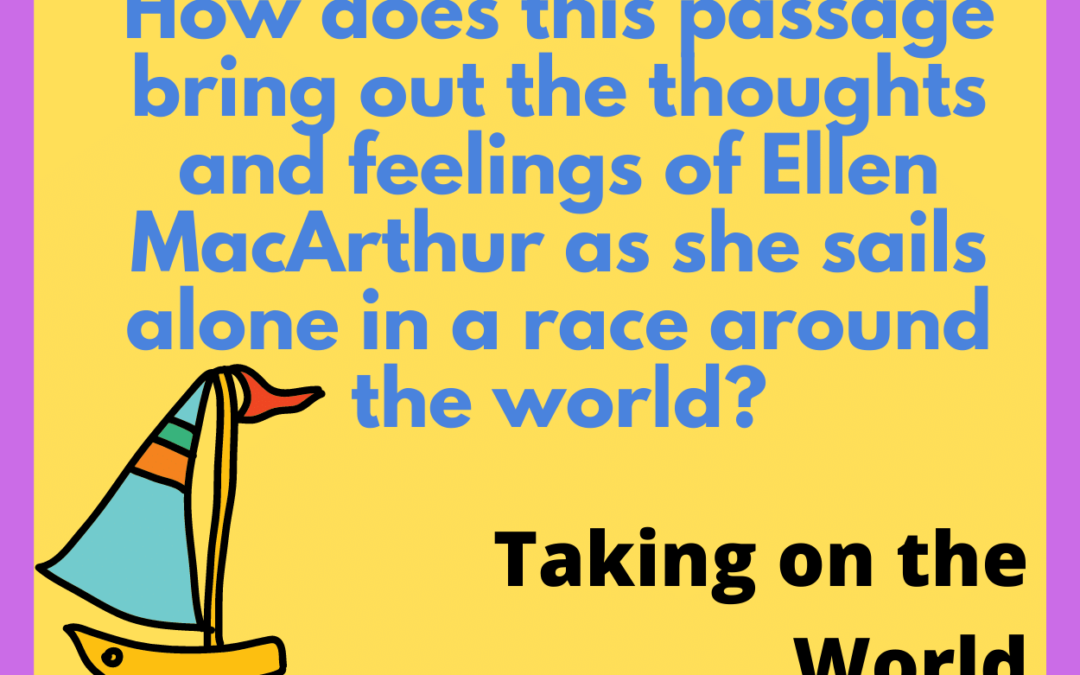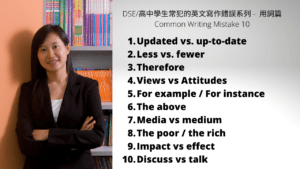Edexcel English IGCSE: From Taking on the World by Ellen MacArthur
Q2. How does this passage bring out the thoughts and feelings of Ellen MacArthur as she sails alone in a race around the world?
Edexcel English IGCSE Model Essay by an Expert
Ellen MacArthur experiences a range of emotions in this passage, ranging from exhaustion to elation. She has negative feelings of isolation and fear, but also reveals her determination and sense of accomplishment.
MacArthur expresses her sense of isolation as she embarks on this lonely challenge. The mention of “Christmas Eve” usually conjures images of family togetherness, highlighting by contrast her solitude. Similarly, her hyperbolic observation that “the sea stretched out forever” emphasises the lack of human company. In the first part of the passage, the singular personal pronoun (“I”) is used repeatedly, showing that MacArthur is the only one who can take responsibility for this difficult task. Later, she uses the plural personal pronouns “we” and “us”, to refer to herself and her boat; this creates the impression that the boat is her only friend on the trip. We can surmise from this personification that she misses human companionship.
While she is climbing the mast, MacArthur experiences fear and vulnerability. She uses the simile of “stepping out onto the moon” to describe her task; this simile portrays her frightening lack of control over the boat itself once she is on the mast. There is a sense of fear and tension, too, when she notes that “there would be no second climb”, since the climb would be too exhausting to complete twice. This places great pressure on her for the climb to be successful first time. When she is climbing the mast, the ambiguous phrase ”and hoped” finishes a sentence describing her fearful position on the mast. This suggests that the potential outcome of disaster is too terrible to state outright. As she descends the mast, she expresses her fear explicitly for the first time with the idiom, “I had my heart in my mouth”. The use of an idiom here shows the difficulty of finding adequate words to describe her fear.
In spite of her fear and loneliness, MacArthur’s dominant emotion seems to be that of determination and resilience. The description of the task emphasises its physical difficulty: “physical drain”, “clinging on” and “just to hang on”, for example. In combination with the language of physical fatigue, MacArthur uses the ‘Show Don’t Tell’ technique to show her determination: she holds onto the mast with “eyes closed and teeth gritted” and “wrists clenched together”. This provides the reader with a visual image of her determination in the face of exhaustion. She also talks to herself – “not far now, kiddo” – showing her desperate need for motivation, and her ability to provide it for herself. The final emotion that MacArthur feels is that of elation, as a reward for her determination. She uses the idiomatic simile, “I felt like a million dollars”, to express her pride and jubilation.



